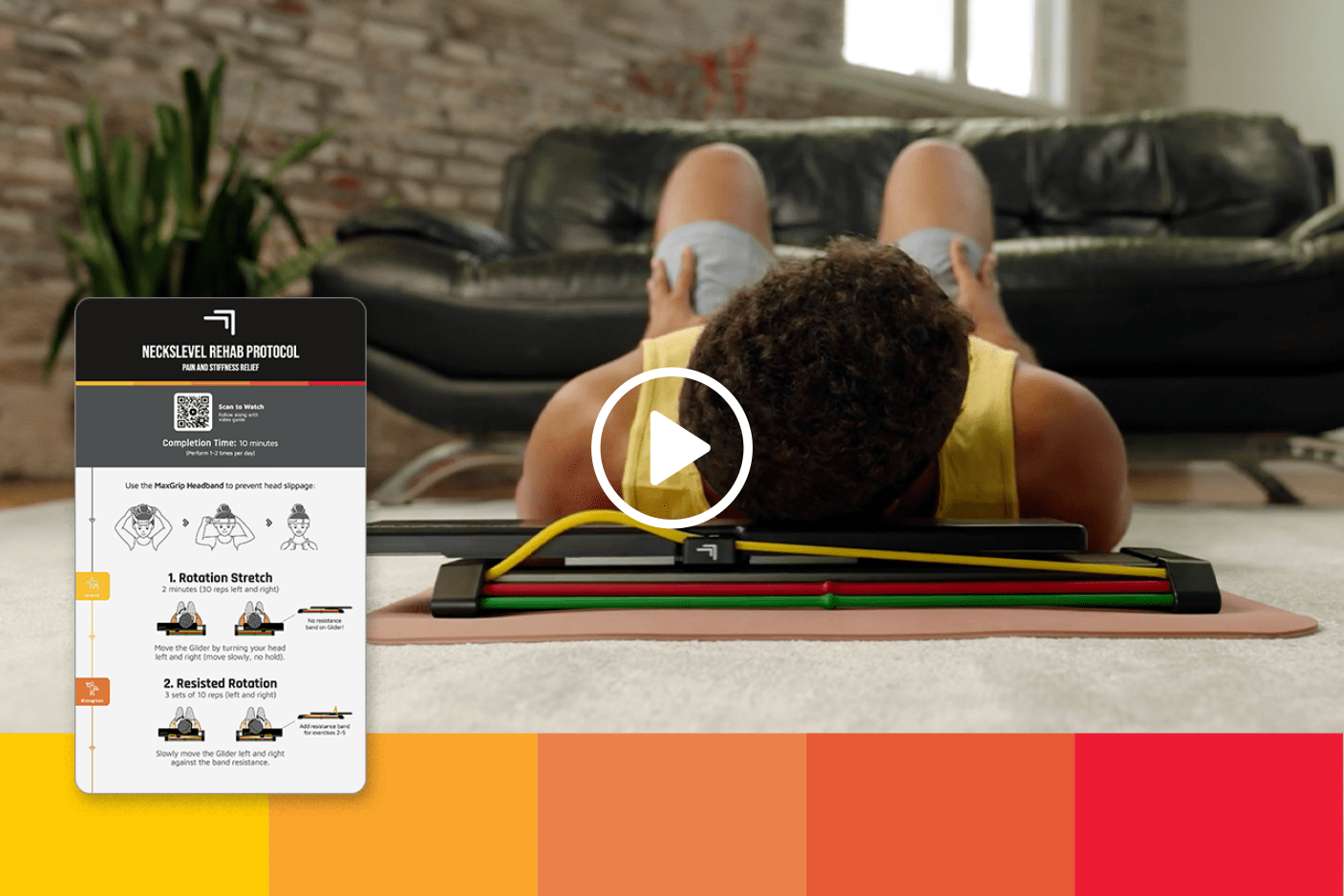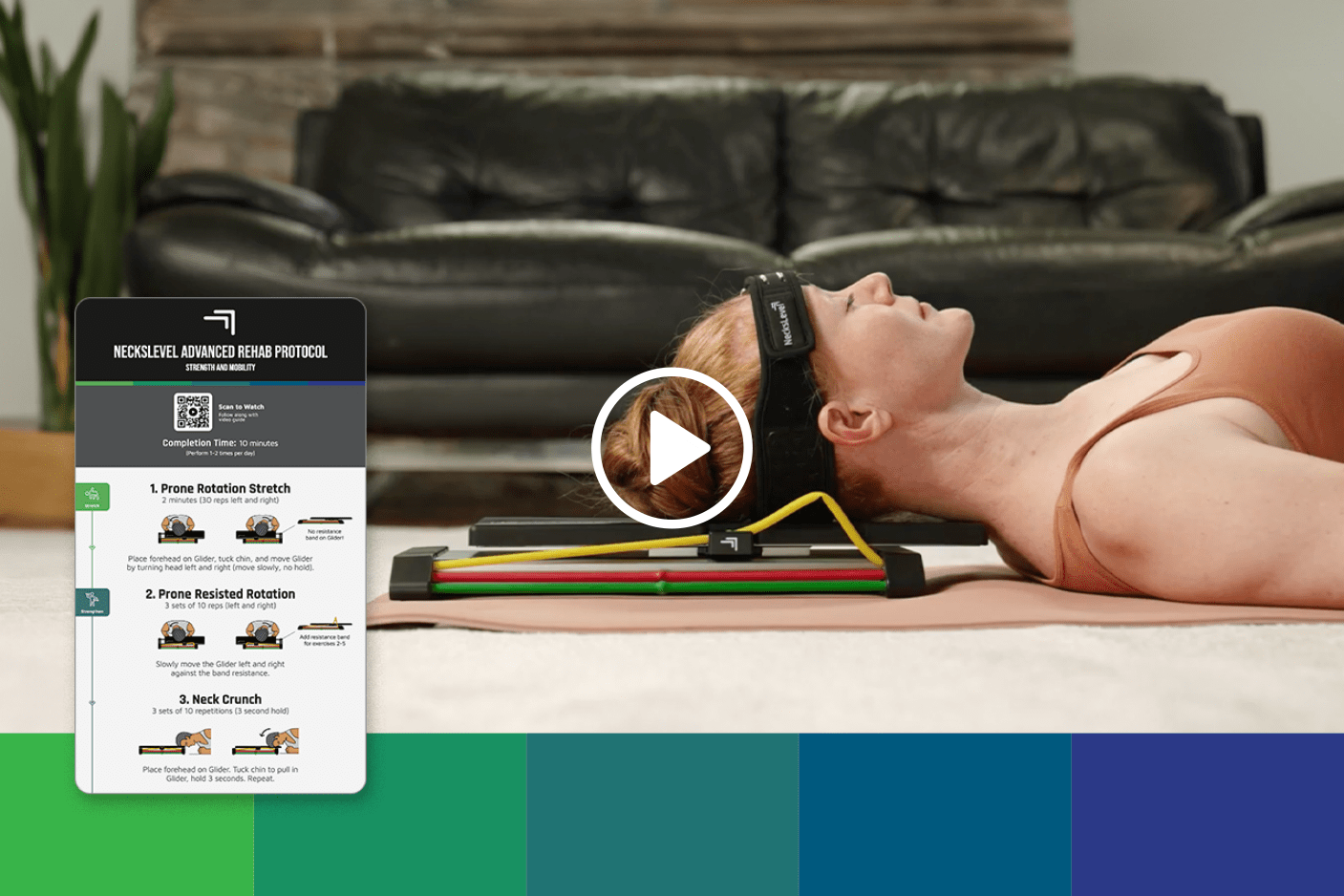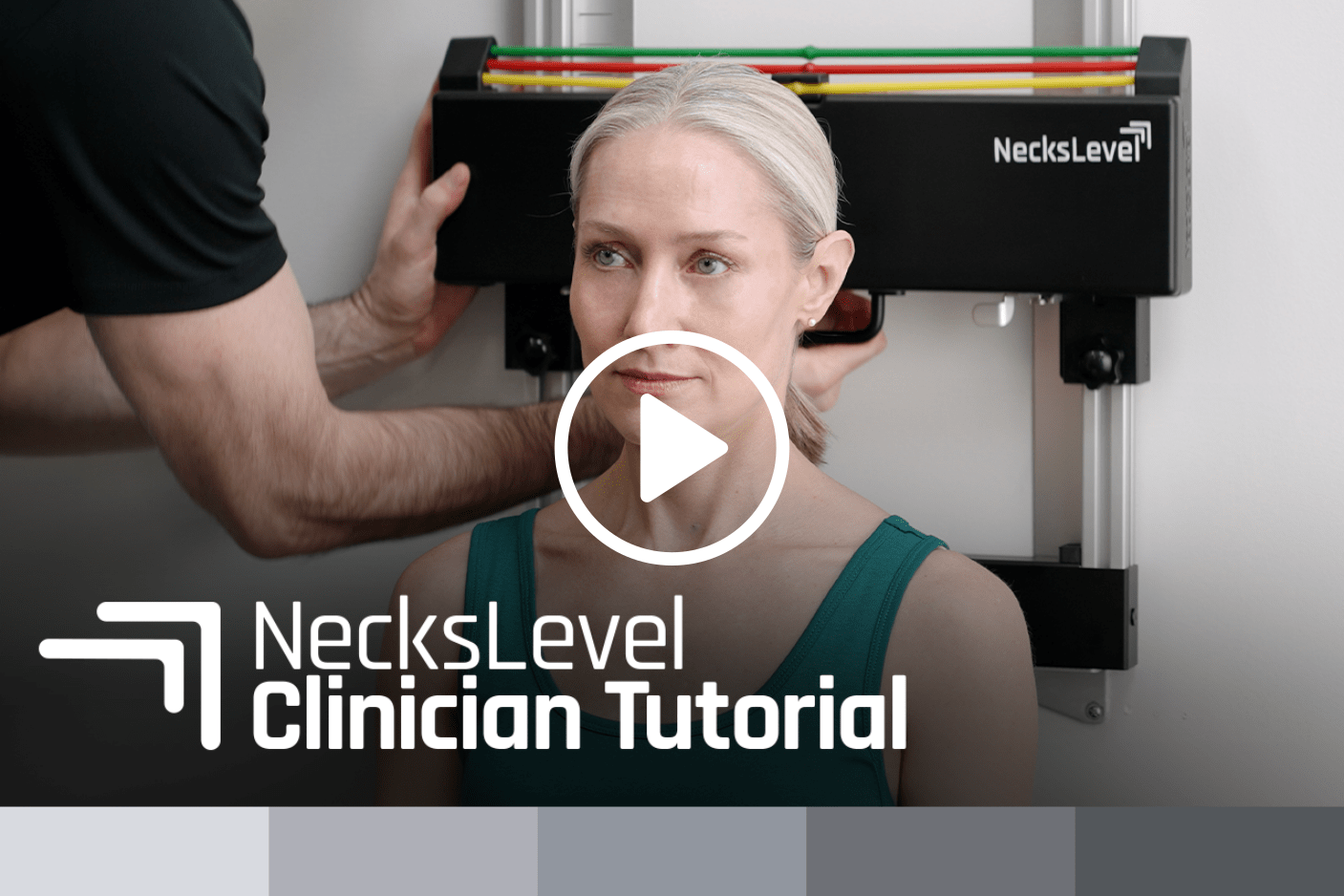Causes and Solutions for Tension Headaches: How to Relieve a Tension Headache
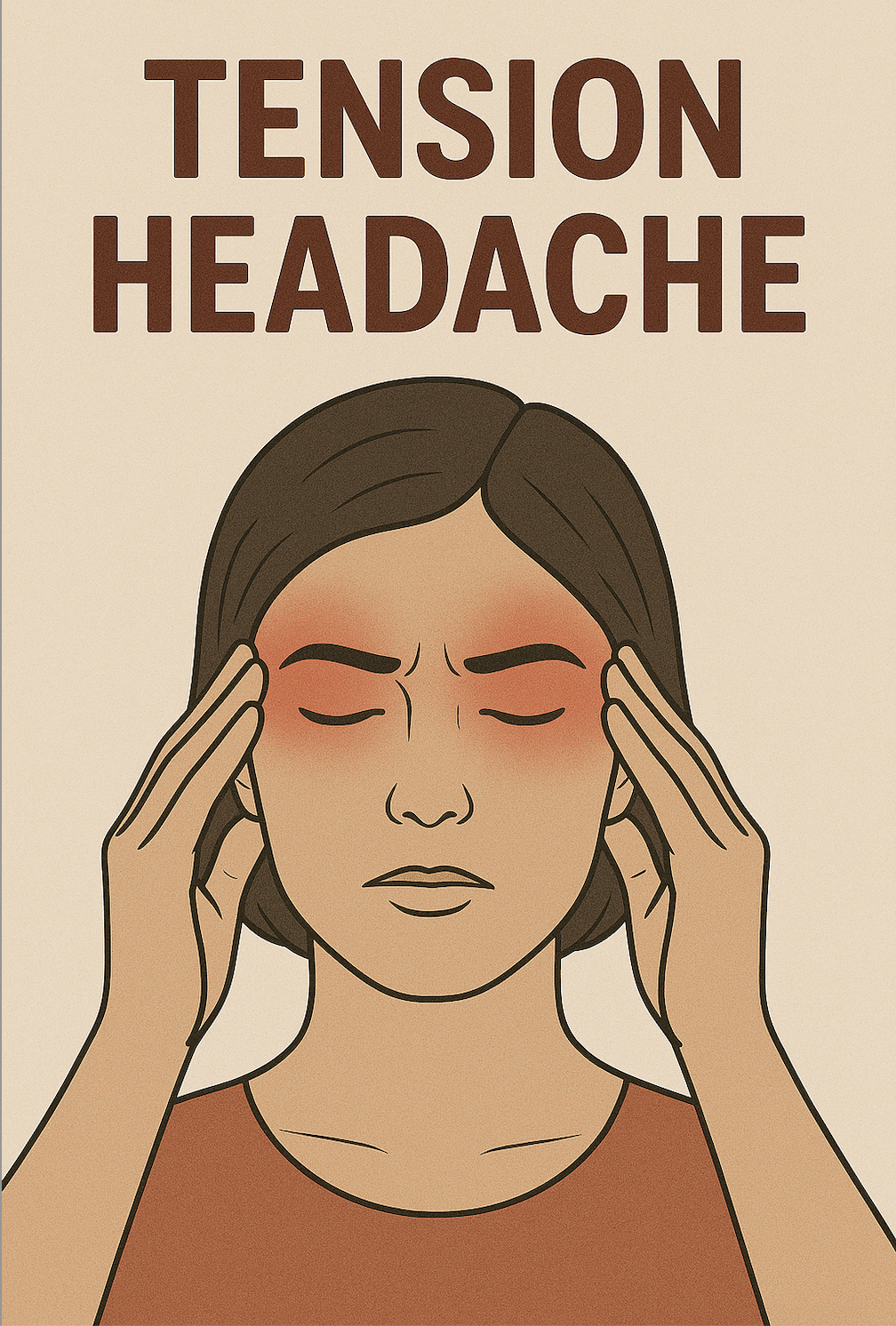
Tension headaches are one of the most common types of head pain. Many people describe them as a dull, squeezing sensation that wraps around the head. These headaches can last for hours or even become chronic, affecting daily life and productivity.
If you have asked how do you relieve tension headaches or what causes tension headaches, you are not alone. This guide will explain tension headache symptoms, causes, treatments, and prevention strategies. It will also highlight the importance of strengthening the neck as part of long term tension headache relief.
What Does a Tension Headache Feel Like
Tension Headache Symptoms
Tension and stress headaches typically produce steady, non-throbbing pain. People often describe it as a tight band around the skull. Symptoms can include:
• Dull pressure on both sides of the head
• Forehead or temple pain
• Tenderness in the scalp and neck
• A feeling of heaviness or tightness across the skull
Tension Headache Location
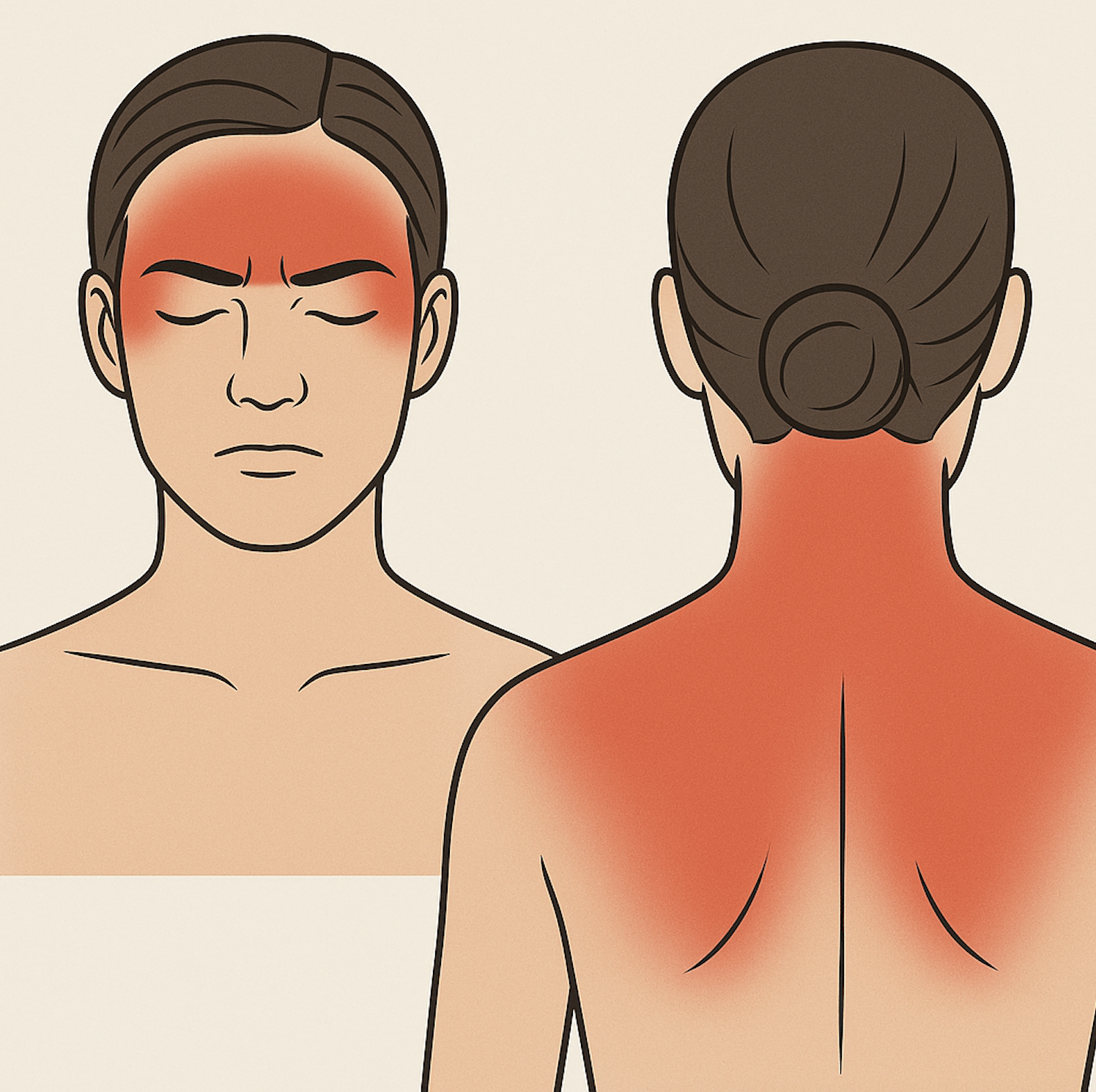
The pain often starts at the temples, forehead, or back of the head. In many cases it radiates into the neck and shoulders, creating what is called a neck tension headache.
What Causes Tension Headaches
Physical Triggers
The most common tension headache causes are related to muscle strain. Poor posture, slouching at a desk, and long periods looking down at a phone all place extra stress on the neck and shoulders. This strain spreads upward into the head.
Emotional and Lifestyle Triggers
Stress, anxiety, dehydration, lack of sleep, and jaw clenching can all contribute to tension and stress headaches. Skipping meals and extended screen time also increase the likelihood of pain.
Chronic Tension Headaches
When these triggers happen repeatedly, chronic tension headaches may develop. Chronic cases occur more than 15 times a month and can last all day. These often require deeper treatment strategies.
How Long Do Tension Headaches Last
Episodic Tension Headaches
These headaches usually last a few hours and improve with rest, hydration, or stretching.
Chronic Tension Headaches
Chronic forms can last much longer. Many people experience discomfort for the entire day. Without proper treatment, they often recur regularly.
Tension Headache Treatment
Short Term Relief Options for Tension Headaches
• Rest in a quiet room away from bright lights and noise
• Apply a warm compress to relax tense muscles
• Place a cold pack on the forehead to reduce discomfort
• Stay hydrated and eat balanced meals
• Try gentle scalp, temple, or neck massage
These provide temporary relief but do not address the deeper cause of tension headache pain.
Long Term Solutions for Tension Headaches
While short term methods bring quick comfort, lasting change comes from long term prevention. These approaches target the root causes of tension and stress headaches and help stop them from returning.
• Improve posture through daily awareness and ergonomic adjustments at work and home
• Get consistent sleep to allow the body and muscles to fully recover
• Manage stress with relaxation techniques such as meditation, deep breathing, or yoga
• Stay physically active with regular exercise to improve circulation and reduce neck stiffness
• Strengthen the neck muscles with targeted exercises or tools like NecksLevel Glide to provide better support for the head and reduce recurring strain
These long term strategies not only relieve tension headache frequency but also build resilience in the body. Strengthening the neck muscles in particular creates stability and prevents the cycle of recurring headaches from taking hold.
The Role of Neck Strengthening in Tension Headache Relief
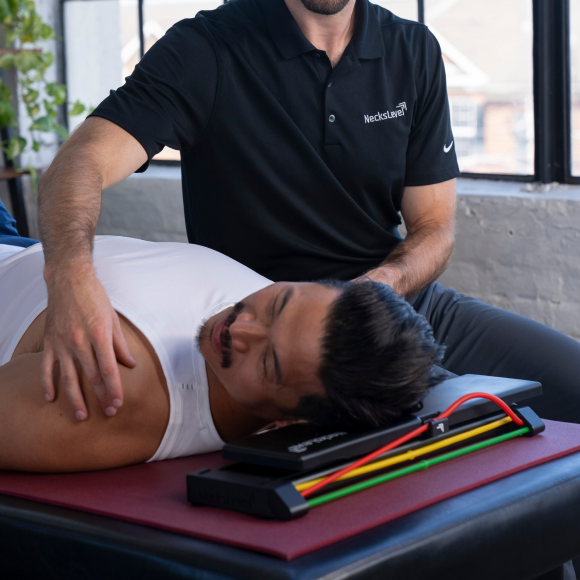
Why Neck Muscles Matter
Many people searching how to fix tension headache overlook the role of neck strength. The cervical spine and surrounding muscles support the head’s weight all day. Weak or strained neck muscles become fatigued, creating tension that radiates upward.
How Neck Strengthening Prevents Headaches
When the neck muscles are strong, the head rests in better alignment. This reduces strain on the shoulders and upper back, which often trigger neck tension headaches. Strong muscles also improve posture, making it easier to sit upright for long hours without discomfort.
Neck Strengthening Exercises for Tension Headache Relief

Strengthening the neck does not require complicated equipment. A few simple exercises done consistently can provide real tension headache relief. Check out our other article for a full list of neck exercises.
Chin Tucks
Sit or stand upright and gently pull your chin straight back, as if trying to make a double chin. Hold for five seconds and repeat ten times. This activates the deep neck flexors that support posture.
Neck Isometric Holds
Place your hand on your forehead and push your head gently into your hand without allowing movement. Hold for five seconds. Repeat the same pressure against the back of your head and each side. These holds build strength evenly across the neck.
Shoulder Blade Squeezes
Sit or stand with your arms at your sides. Pull your shoulder blades together and hold for five seconds. This improves upper back stability and reduces strain that contributes to neck tension headaches.
Upper Trapezius Stretch
Sit tall, tilt your head to one side, and gently use your hand to deepen the stretch. Hold for twenty seconds on each side. Stretching helps balance the strengthening work and prevents stiffness.
Lifestyle Approaches for Tension Headache Relief
Stress Management
Relaxation techniques such as deep breathing, meditation, and yoga can ease tension and stress headaches. Reducing emotional stress is key to lowering the physical stress that triggers pain.
Sleep and Rest
Good sleep allows muscles to repair and reduces fatigue. Maintaining a consistent sleep schedule is one of the simplest ways to prevent recurring tension headaches.
Ergonomic Adjustments
Improving your workspace makes a big difference. Raise your screen to eye level, sit with your back supported, and take breaks every 30 minutes to stretch. This reduces the strain that leads to chronic tension headaches.
How to Prevent a Tension Headache
Prevention is the most effective way to reduce tension headache frequency. Key steps include:
• Drinking enough water throughout the day
• Taking screen breaks to avoid eye strain
• Stretching the neck and shoulders regularly
• Maintaining upright posture
• Practicing stress management every day
By combining these habits with neck strengthening exercises, you can significantly reduce the risk of future pain.
How to Relieve a Tension Headache with NecksLevel
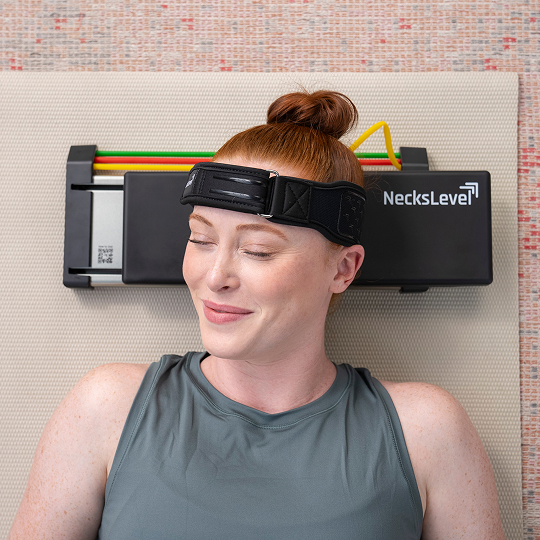
Strengthening the neck is one of the most effective long term treatments for headaches tension headaches. NecksLevel is a neck strengthening device designed to improve posture and build balanced muscle support. By using NecksLevel regularly, you can reduce the frequency of neck tension headaches and improve daily comfort.
For those asking how can I get rid of tension headaches or how to relieve a tension headache permanently, the answer often lies in combining stress reduction with consistent neck training. NecksLevel provides a practical way to achieve that balance.
Conclusion
Tension headaches can be frustrating, but they are manageable. By learning what causes tension headaches, recognizing tension headache symptoms, and practicing effective treatments, you can relieve tension headache pain and prevent it from becoming chronic.
Short term solutions such as rest, hydration, and massage provide quick relief. Long term prevention requires better posture, stress management, and neck strengthening. Tools like NecksLevel can support this process, offering a clear path to fewer headaches and greater comfort.
Written by:

Dr. Scott Dickenson, DPT, ATC
Physical Therapist
Scott is an Orthopedic Physical Therapist specializing in neck pain with nearly a decade of clinical experience. He regularly speaks at national Physical Therapy, Athletic Training, & Chiropractic conferences on neck injuries & rehab in sport.
NecksLevel Glide
"Like having a Physical Therapist in your home"
Professional neck strengthening and stretching in one compact device. Relieve neck pain while reducing neck stiffness & improving your posture.
SHOP NOW

Related Resources:


